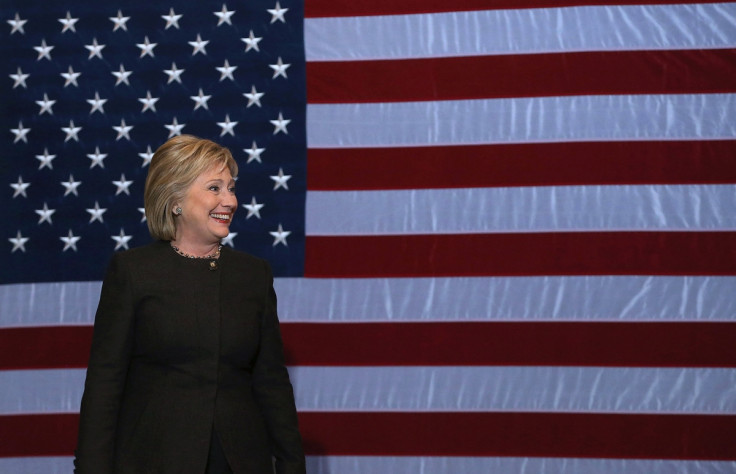Hillary Clinton: Having a female president is not as important as helping poor American women

In every stable democratic country there is a privileged subset of people who will basically be all right no matter what. Whichever way the political winds blow – within the established bounds of possibility – they've got the resources, status and support network to ride it out just fine.
A proportion of this elite group consider themselves to be on the left of the political spectrum. As such, they mostly tend to believe that things like universal healthcare and comprehensive welfare systems are thoroughly good ideas. A large number also identify themselves as committed feminists. Sometimes, this feminism complements and informs their opinions on economic inequality and related issues. Frequently, however, it's seen as a separate matter. Something that needs to be balanced against competing priorities.
Overwhelmingly, feminist cases for supporting Hillary Clinton over Bernie Sanders fall into the latter category. When policy is mentioned at all, it's glossed over or downplayed in favour of the central argument: that it's important for women to be represented at the highest levels of political power.
The feminist case against supporting Hillary Clinton over Bernie Sanders does not rest on the idea that representation is irrelevant. All other things being equal, most feminist Sanders supporters agree it would be incredible to see a woman in the White House. Given the choice between Sanders and Elizabeth Warren – a respected, talented female Senator with broadly similar policy positions – I'd certainly choose the woman every time.
But this isn't the choice that Democrats are actually facing. All other things are very much not equal. Sanders and Clinton represent very different policy platforms with very different repercussions for lower income individuals in particular. For women in precarious and low-paid employment, women who struggle to make rent, women who can barely afford to feed their families and the 10% of women who lack access to basic healthcare – Sanders is the candidate advocating policies most likely to improve their material conditions.
The idea of prioritising having a woman president over goals as fundamental as ensuring a baseline standard of living can only make sense to certain sorts of people: those who will basically be fine regardless.
In line with the wider demographics of media commentators, the feminists with the biggest platforms are disproportionately drawn from this privileged strata. Women like Lena Dunham and Jessica Valenti do not have to worry about the existence of a social safety net should they be plunged into abject poverty. It's something that's highly unlikely to happen to them. It's also something that's highly unlikely to happen to any of their friends. In terms of their day-to-day wellbeing, they would experience little difference between a Sanders and a Clinton presidency.
These mainstream feminist voices take the priorities of an elite minority and present them as universal, thus claiming to speak for women as a class. A disproportionate number of people living in poverty in the US are female, but the material needs of economically disadvantaged women are designated a secondary concern to the ambitions of the upper middle classes.
There's a sense of entitlement, justified with reference to the opportunities available to class-privileged men. Male elites are allowed to be "wrong and mediocre" without being denied access to power, argues British feminist Sarah Ditum, so why should women be expected to be any better? It's not fair to judge Hillary based on the effect her policy will have on poor women. Men aren't expected to care about things like that.
The fact that any politician being "wrong or mediocre" has an enormous impact on the many women whose lives lay in their hands doesn't seem to trouble her. Even when she acknowledges that Sanders is being equally judged based on the feminist effects of his policy, she still appears to believe that Clinton's gender should swing it in her favour.
Ultimately though, the issue isn't really that feminists are unwilling to stand with Hillary. It's that many women – particularly millennials, who are more likely to be financially insecure – are coming to recognise that Hillary doesn't stand with them.
© Copyright IBTimes 2025. All rights reserved.






















